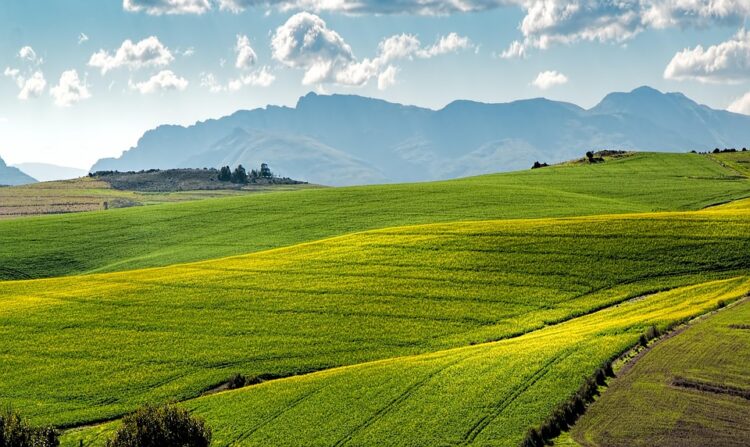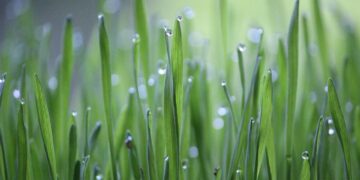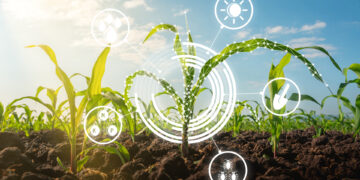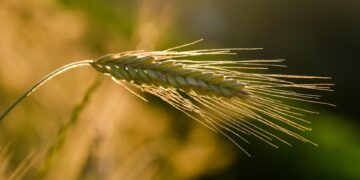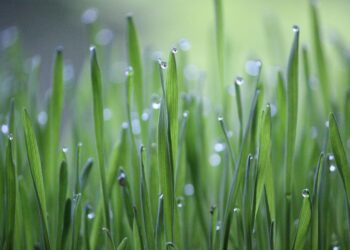[ad_1]
Growing for the Future: Sustainable Farming Practices for a Greener Tomorrow
Sustainable farming is the practice of producing food, fiber, or other plant or animal products using farming techniques that protect the environment, public health, human communities, and animal welfare. With the increasing awareness of climate change and the need for sustainable practices, many farmers are turning towards sustainable farming methods to ensure a greener tomorrow. In this article, we will explore the importance of sustainable farming, common sustainable farming practices, and how they can help create a healthier and more sustainable future.
The Importance of Sustainable Farming
Sustainable farming is crucial for several reasons. Firstly, it helps to protect the environment by reducing the use of harmful chemicals and pesticides that can pollute the soil and water sources. By using organic farming methods, sustainable farmers can maintain the health of the land and promote biodiversity.
Secondly, sustainable farming practices help to mitigate the effects of climate change. By reducing greenhouse gas emissions and promoting carbon sequestration in the soil, sustainable farming can help to combat global warming and create a more stable climate for future generations.
Finally, sustainable farming is essential for ensuring food security and promoting public health. By growing food in a way that is environmentally friendly and free from harmful chemicals, sustainable farmers can provide nutritious and safe food for consumers while also protecting the health of farm workers and communities.
Common Sustainable Farming Practices
There are several sustainable farming practices that farmers can implement to promote environmental and social sustainability. Some of these practices include:
Organic Farming
Organic farming is a method of growing crops that does not use synthetic fertilizers, pesticides, or genetically modified organisms. Instead, organic farmers rely on crop rotation, composting, and natural pest control methods to maintain soil health and produce healthy crops.
Agroforestry
Agroforestry is a farming practice that integrates trees and shrubs into agricultural landscapes. By planting trees alongside crops, farmers can help to improve soil fertility, conserve water, and provide habitat for wildlife.
Water Conservation
Water conservation is essential for sustainable farming practices. Farmers can reduce water usage on their farms by implementing drip irrigation systems, using cover crops to prevent soil erosion, and capturing rainwater for irrigation purposes.
Integrated Pest Management
Integrated pest management is a method of controlling pests that relies on a combination of biological, cultural, and mechanical control methods. By using natural predators, crop rotation, and physical barriers, farmers can reduce the need for chemical pesticides and protect the health of their crops.
How Sustainable Farming Can Create a Greener Tomorrow
By implementing sustainable farming practices, farmers can help to create a greener tomorrow for future generations. Sustainable farming promotes environmental sustainability by reducing the use of harmful chemicals and promoting biodiversity. It also helps to mitigate the effects of climate change by reducing greenhouse gas emissions and promoting carbon sequestration in the soil.
Additionally, sustainable farming practices can help to ensure food security and promote public health by providing nutritious and safe food for consumers. By growing food in a way that is environmentally friendly and free from harmful chemicals, sustainable farmers can protect the health of farm workers and communities.
Conclusion
Sustainable farming is essential for creating a healthier and more sustainable future. By implementing sustainable farming practices such as organic farming, agroforestry, water conservation, and integrated pest management, farmers can protect the environment, mitigate the effects of climate change, and promote food security and public health.
By working together to promote sustainable farming practices, we can help to ensure a greener tomorrow for future generations. Let’s grow for the future and create a more sustainable world for all.
[ad_2]


